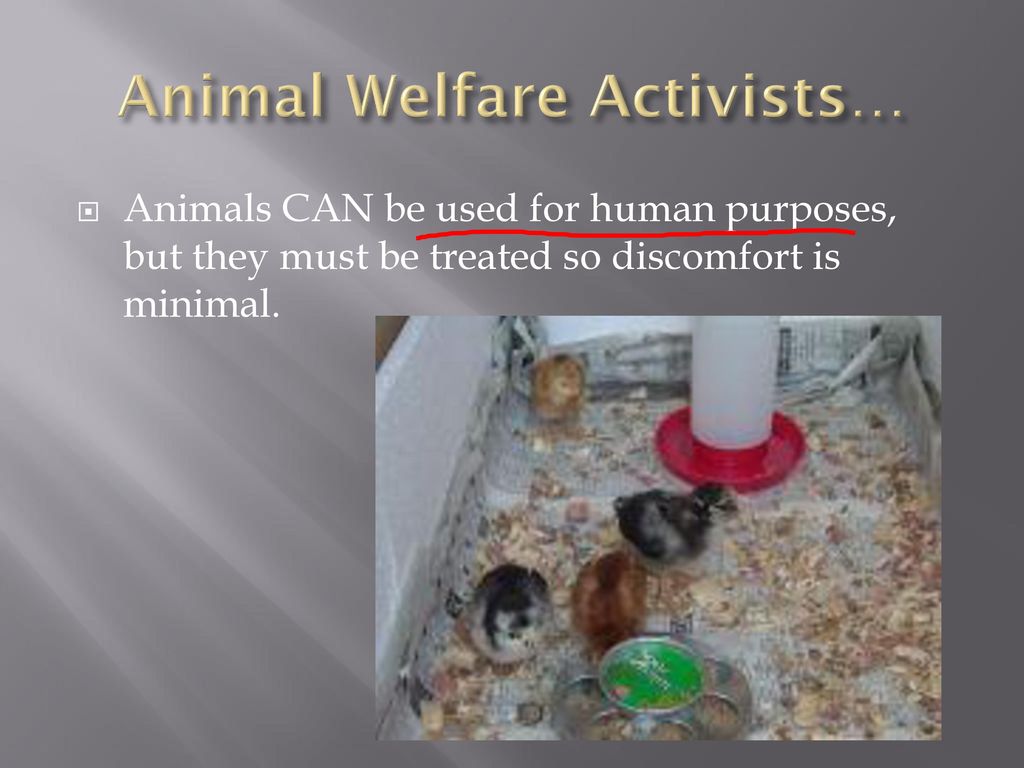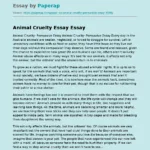Animal welfare has long been a significant concern for a plethora of organizations, activists, and citizens alike. The idea of ensuring humane treatment and care for animals promotes a more compassionate society, aligning with ethical and moral imperatives. However, an intriguing observation surfaces in certain circles: a reluctance, or even an outright desire, to diminish or abolish established animal welfare standards. This sentiment merits thoughtful analysis to unravel the complexities behind it.
The initial premise for questioning animal welfare often rests on economic motivations. In industries where animals are commodified—such as agriculture, fashion, and entertainment—strict welfare regulations can inadvertently elevate operational costs. Producers may argue that increased compliance costs diminish competitiveness, particularly in a globalized economy where cheaper alternatives abound. This perspective creates an environment where the drive for profit overshadows ethical considerations, prompting a segment of society to advocate for the abolition of animal welfare regulations in favor of unregulated market dynamics.
Moreover, the philosophical underpinnings of certain ideologies lend credence to anti-welfare perspectives. Within the framework of utilitarianism, for instance, some may rationalize that the greater good of humanity supersedes the moral obligations toward animals. This skewed application of utilitarian philosophies can lead to a devaluation of animal lives, positing that any measures taken to ensure welfare detract from human progress. The pervading attitude dehumanizes animals, allowing individuals to conveniently overlook the complexities of sentience and suffering experienced by non-human beings.
This brings us to the cultural dimensions at play. In some societies, traditional practices and beliefs may underpin attitudes toward animals that do not align with modern animal welfare principles. Cultural relativism prompts individuals to cling to established norms, viewing welfare initiatives as an imposition on their way of life. Such a perspective amplifies resistance against animal welfare advocates who are seen as external entities threatening cultural heritage. The tension between tradition and modern ethical standards complicates the dialogue surrounding animal rights and fosters a climate conducive to opposing welfare measures.
Furthermore, an interesting psychological facet emerges when examining the motivations for combating animal welfare. Cognitive dissonance—a state of mental discomfort experienced when confronted with conflicting beliefs—often plays a role. For individuals deeply embedded in industries reliant on animal exploitation, the acknowledgment of animal suffering can create an internal conflict. To alleviate this dissonance, some might gravitate toward anti-welfare stances as a coping mechanism. By rejecting the very notion of animal welfare, they can maintain their current practices without grappling with the moral implications of those actions.
The rhetoric utilized in opposition to animal welfare often strays into fringe territory, invoking conspiracy narratives that suggest a nefarious agenda among welfare advocates. This conspiratorial outlook posits that animal rights organizations are not merely fighting for better treatment of animals but are rather seeking to dismantle entire systems, such as agriculture or animal husbandry. Such claims, while devoid of substantive evidence, illustrate how fear and misconceptions can morph into a central tenet of resistance against welfare initiatives. The result is a fracturing of dialogue that eschews rationality in favor of emotive and sensationalist discourse.
Moreover, the indignation observed in anti-welfare circles can also stem from a perceived threat to personal freedoms and autonomy. In liberal democracies, individual rights are championed, and when animal welfare measures are introduced, some may interpret them as encroachments on personal liberties. This reaction can be exacerbated by political ideologies that valorize individualism, rendering any calls for collective responsibility toward non-human entities as an affront to personal choice. As a result, the conversation around animal welfare can devolve into a polarized debate, hindering collaborative efforts between opposing factions.
Despite these intricacies, it is imperative to confront a fundamental question: What would society look like if animal welfare measures were systematically dismantled? The potential ramifications are alarming. Envision a world where animals are exploited without regard for humane practices—inhumane breeding, unsanitary living conditions, and cruel training methods would proliferate. Animal suffering would escalate to unprecedented levels, leading to public health consequences, environmental degradation, and an overall erosion of societal ethical standards.
Furthermore, relinquishing animal welfare standards would not only impact non-human animals; it would reflect the ethos of a society. A compassionate society hinges on the recognition of the rights of all sentient beings. As norms around welfare and kindness erode, a trickle-down effect can contribute to broader societal desensitization. The implications could permeate human interactions, instigating a culture where empathy curtails, and exploitation becomes normalized. The societal fabric that promotes respect, compassion, and interdependence could fray, leading to a dystopian future.
In summation, the inclination to sideline animal welfare is a multifaceted phenomenon, influenced by economic, cultural, psychological, and ideological factors. The debate surrounding this issue opens a Pandora’s box of ethical questions, revealing deeper societal anxieties and flaws. Pondering the consequences of moving towards a world devoid of welfare standards invites a crucial reflection on our values as a society. Indeed, unraveling the layers of resistance to animal welfare may illuminate profound realizations regarding our obligations—not solely to animals but also to each other and the principles of compassion that should guide human behavior.










